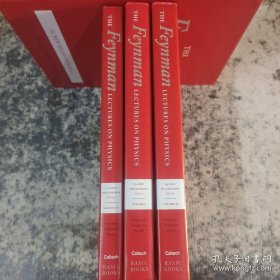
Lectures on the Ethics of T. H. Green, Mr Herbert Spencer, and J. Martineau(实拍书影,国内现货)
¥ 486 九品
仅1件
作者Henry Sidgwick (Author), E. E. Constance Jones (Editor)
出版社Cambridge University Press; Reissue edition
ISBN9781108040372
出版时间1981
印刷时间2011-02
装帧平装
页数424页
货号c3
上书时间2017-12-04
- 在售商品 暂无
- 平均发货时间 13小时
- 好评率 暂无
- 最新上架
商品详情
- 品相描述:九品
- 书沿有少许污迹,新书未曾使用。
- 商品描述
-
One of the most influential of the Victorian philosophers, Henry Sidgwick (1838 to 1900) also made important contributions to fields such as economics, political theory, and classics. An active champion of higher education for women, he founded Cambridge's Newnham College in 1871. He attended Rugby School and then Trinity College, Cambridge, where he remained his whole career. In 1859 he took up a lectureship in classics, and held this post for ten years. In 1869, he moved to a lectureship in moral philosophy, the subject where he left his greatest mark. Published posthumously in 1902, this work is Sidgwick's expository critique of the leading schools of thought that had emerged to rival his philosophy of utilitarianism, which he had presented previously in his masterpiece The Methods of Ethics (also reissued in this series).
Henry Sidgwick (May 31, 1838 - August 28,1900) was a professor, philosopher, writer and advocate for women's education. An analytical Utilitarian in his politics, as a philosopher he examined the principles of "ethical hedonism," human behavior and free will. He developed a reputation as an excellent teacher who treated students as equals and was also a member of the Metaphysical Society.
相关推荐
-

LECTURES ON THE DIENCEPHALON
八五品保定
¥ 120.00
-

The Feynman LECTURES ON PHYSICS
八五品北京
¥ 200.00
-

The Feynman lectures on physics
八五品阜阳
¥ 300.00
-

The Feynman Lectures On Physics
九品北京
¥ 300.00
-

Lectures on the French Revolution
八五品扬州
¥ 278.00
-

THE Feynman Lectures On Physics
九五品石家庄
¥ 860.00
-

Lectures on the Ricci Flow
八品新余
¥ 480.00
-

Lectures on the French Revolution
八五品扬州
¥ 420.00
-

lectures on the yheory of functions
八五品北京
¥ 80.00
-

Lectures on the Riemann zeta function
全新武汉
¥ 52.07
— 没有更多了 —


















以下为对购买帮助不大的评价